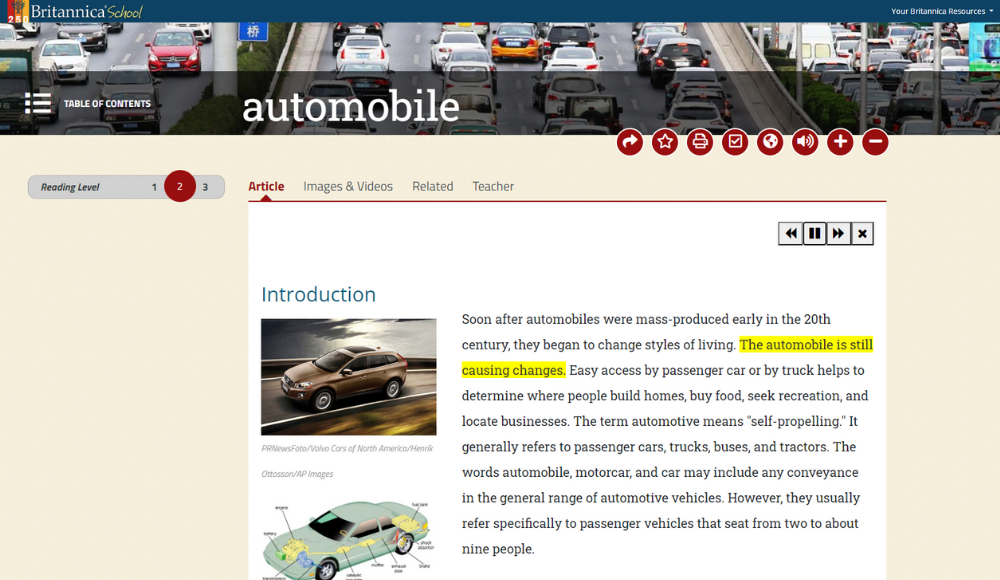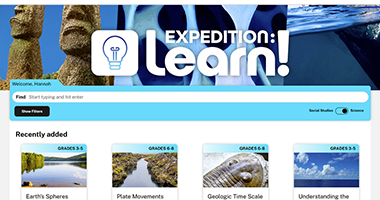In our ever-growing digital world, where schools are relying more heavily on the use of ICT tools and spaces for teaching and learning, educators are coming to acknowledge the value offered in the use of online reference materials for learning.
Online reference materials play a critical role in today’s education. They provide teachers with a sense of comfort in knowing that the learners under their guidance and tuition will be accessing trustworthy, authoritative, relevant content that is free from bias and enjoyable to read.
Katherine Cross, Librarian at Lightning Ridge Central School, has been using Britannica School with her Stage 1 classes during their library lessons. Recently, their topic has been “The Past in the Present”, where students used Britannica School’s Primary Level to research different technological devices and explain how they worked, how they made life easier and how the technology has changed over time.
On a whole the students I have been working with love using Britannica.
Access to Britannica’s online reference materials cut down on the time that Katherine’s students spent on research. A central keyword search on Britannica School brought up a variety of content relating to the focus topic and provided students with immediate access to a rich selection of fact-checked information. Students were able to find the information they needed either by reading the articles themselves or using the read-aloud function and taking screenshots (with iPads) when the sentence they wanted was highlighted while being read aloud. They were then able to retell the information themselves and answer the questions.

Britannica also enabled Katherine’s classes to simultaneously access information across a wide variety of educational and personal interest subjects. During 2020 NAIDOC Week, Katherine’s Stage 3 classes used the Britannica School article “Australian Aboriginal Peoples” to select one Notable Aboriginal Person to do a presentation on. Students found it helpful to use Britannica compared to other websites, as they could check the meaning of words they didn’t know (using the built-in double-click dictionary) and copy the reference of the page directly into their bibliography (using the citation tool). Given the activity’s resounding success, Katherine has planned to repeat it with Stage 3 in NAIDOC Week this year, as well as set a similar task for Stage 2 on world explorers.
For teachers, Britannica School is much more than an online reference site that houses articles and multimedia. Its arsenal of accessibility tools is helpful for users of all ages and abilities when they are engaging with challenging content. These features include adjustable reading levels, article read-aloud, a translate function and closed captioning on videos.
For Katherine, these extra features are what makes Britannica work for her classroom. “On the whole the students I have been working with love using Britannica because they can change the article to suit their level, check the definition of unfamiliar words with a click, and some very clever students used the read-aloud function on mute so they could use the highlighted text to keep them from losing their place when reading!”
Britannica is recognised as a respected, authoritative source of online reference materials. Britannica, having “been a staple of knowledge within educated homes for centuries” (Kubiszewski, Noordewier & Costanza, 2011, p. 660), will continue as such for centuries to come.

